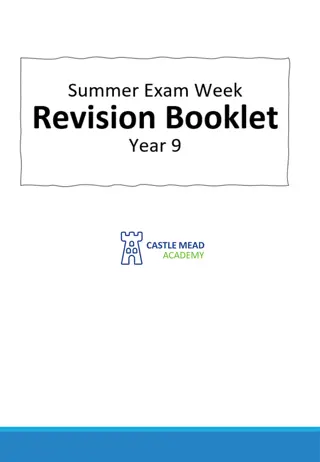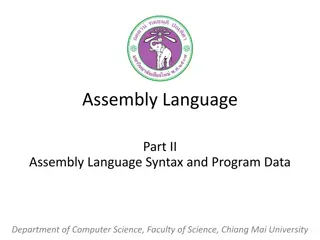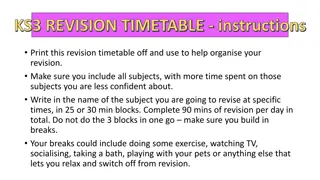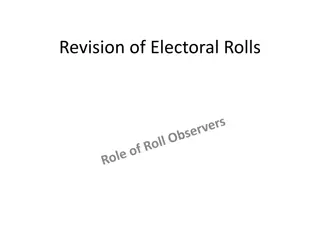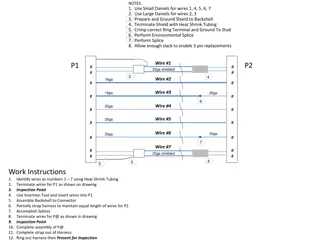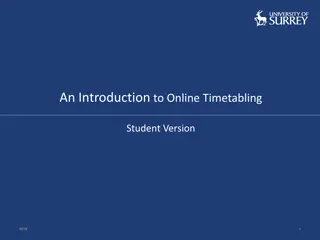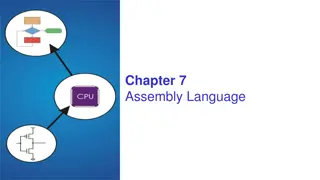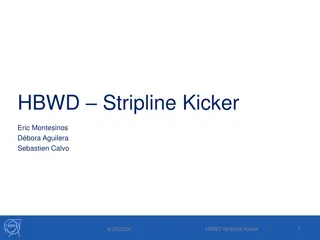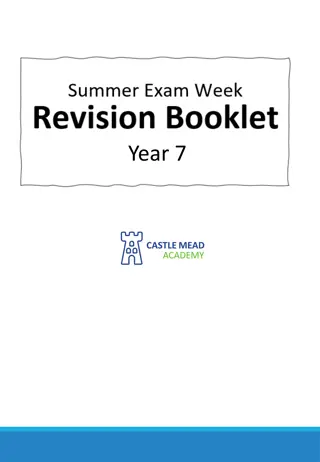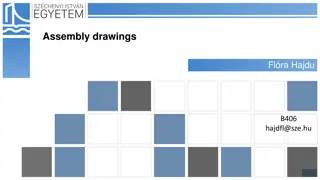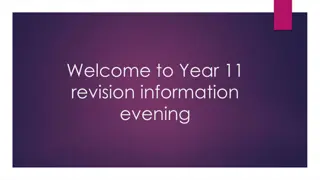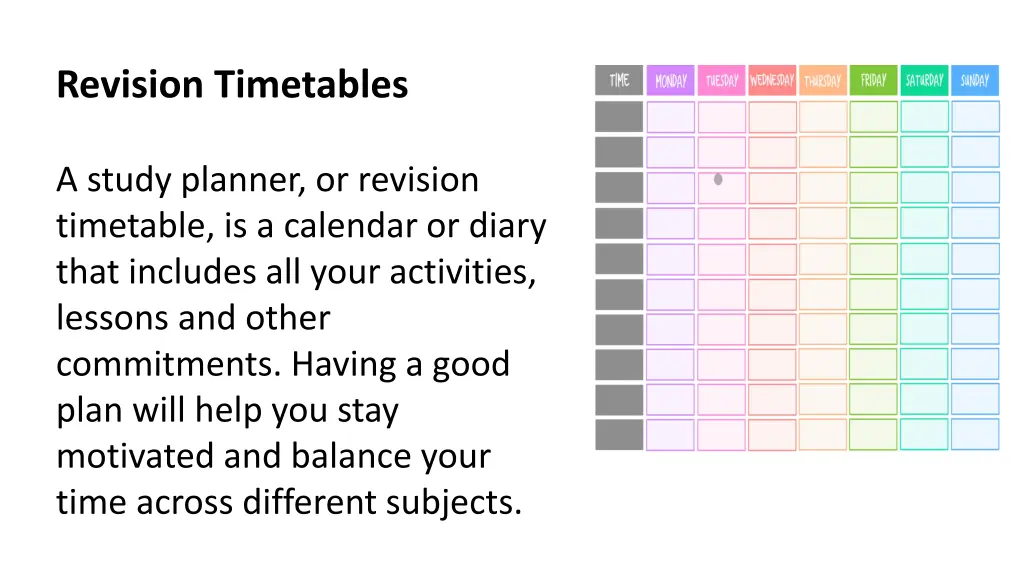
Effective Revision Strategies for Academic Success
Discover the importance of memory in the revision process, learn how to transition information from short-term to long-term memory, and explore helpful tips for breaking up your revision schedule. Take control of your study plan with expert guidance on timetabling your revision effectively.
Download Presentation

Please find below an Image/Link to download the presentation.
The content on the website is provided AS IS for your information and personal use only. It may not be sold, licensed, or shared on other websites without obtaining consent from the author. If you encounter any issues during the download, it is possible that the publisher has removed the file from their server.
You are allowed to download the files provided on this website for personal or commercial use, subject to the condition that they are used lawfully. All files are the property of their respective owners.
The content on the website is provided AS IS for your information and personal use only. It may not be sold, licensed, or shared on other websites without obtaining consent from the author.
E N D
Presentation Transcript
Revision Timetables A study planner, or revision timetable, is a calendar or diary that includes all your activities, lessons and other commitments. Having a good plan will help you stay motivated and balance your time across different subjects.
Memory and Revision Memory and Revision Our memory is split into two key parts. Short term memory: what information we can hold about a topic in our heads as soon as we hear about it. This is the new information you learn in a lesson, like who Scrooge is and what Marley s Ghost says to Scrooge. The short term memory is very small and can only hold about 7 new bits of information at once. This is why we forget things. Distractions, such as noise from other pupils or things outside the classroom, attack our short term memory and fill up the 7 things with information we don t need. This makes it harder to learn.
Memory and Revision Memory and Revision Long term memory: this is the information that you can remember outside the classroom. Facts in your long term memory never go away and are stored forever. This is how you can remember your own address, an important person s phone number, or football facts about your team. You don t need to revise this information to remember it because it's now stored in your long term memory.
Memory and Revision Memory and Revision So what is revision? Revision is about moving things from our short term memory to our long term memory. We do this by practicing important information and making it stick. This is learning. You ve only learnt what you can remember without help.
Breaking Up Revision Breaking Up Revision Revision can be overwhelming! It s important that we know we don t have to revise everything at once. Just like learning any new skill, we need to break down our revision into little chunks that are more approachable. We should plan this out in our week so our short term memory isn t too overloaded.
Timetabling Your Revision Timetabling Your Revision Day Monday Tuesday Wednesday Thursday Friday Saturday Sunday Time Time Time Time
Timetabling Your Revision Timetabling Your Revision Day Monday Tuesday Wednesday Thursday Friday Saturday Sunday DAY OFF 4:00-4:30 Maths Equations English Lit A Christmas Carol Biology CLUB English Lang Q3 Structure English Lit An Inspector Calls 4:30-5:00 Geography Physics Maths Trigonometry CLUB P.E Chemistry 5:00-5:30 BREAK BREAK BREAK English Lit Poetry BREAK BREAK 5:30-6:00 P.E English Lang Q5 Creative Writing Chemistry Geography Maths Graphs Physics
Top Revision Tip Revise in small bursts of 20- 30 minutes for each subject. Break up your revision with mind maps, images and varied activities to keep your brain engaged.
Over to You Over to You I will be sending out a template for revision timetables to your tutors. Have a go at creating your own revision timetable and stick to it for your mock exams in May.




